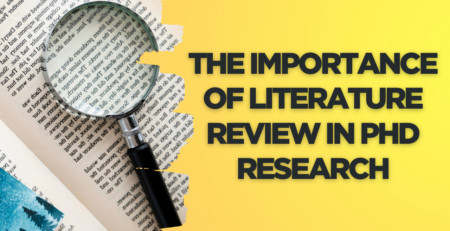03Jan

Publishing research is a crucial milestone in any PhD journey. The process of selecting the right journal for your PhD Journal Publication can significantly influence the visibility and impact of your work. As we step into 2025, the landscape of academic publishing continues to evolve with emerging technologies, stringent standards, and increased global competition. Here’s a comprehensive guide to help you find the perfect journal for your PhD Journal Publication.

Before diving into journal selection, identify your objectives:
Clarifying your goals will streamline the selection process.
Research journals that align with your area of expertise. Tools like Scopus, Web of Science, and Google Scholar can help identify relevant journals based on:
In 2025, academic institutions and employers value quality over the number of publications. Aim for:
Assess the journal’s impact factor, H-index, and other metrics. These provide insights into the journal’s influence and readership. However, don’t solely rely on metrics; consider the journal’s reputation in your field.
With the rise of online publishing, predatory journals have become a significant concern. Look out for red flags:
Use tools like Beall’s List or consult with academic mentors to verify the legitimacy of a journal.
Several platforms make journal selection easier in 2025:
Ensure the journal meets your university’s or funding body’s requirements. For example, some institutions mandate publishing in Scopus-indexed or SCI-listed journals. Collaborate with your supervisor to align on these expectations.
Publication timelines can vary widely. If you’re working with deadlines, prioritize journals known for:
While some journals are free to publish in, others may charge publication or open-access fees. Plan your budget accordingly and explore funding opportunities if necessary.
Engage with your academic network:
Choosing the right journal for your PhD Journal Publication is a strategic decision that can elevate your academic career. By focusing on quality, aligning with institutional standards, and leveraging digital tools, you can navigate the complex landscape of PhD Journal Publication in 2025 with confidence.

A Literature Review in PhD Research is a fundamental component of PhD research. It serves as the foundation upon... read more

Plagiarism checking is a serious part of academic life, especially for PhD researchers. Before submitting a thesis, research paper, or... read more
Simulating Success: Mastering MATLAB Simulink for Powerful PhD Research Kenfra Research, your PhD success partner, equips you with the knowledge... read more
IISc Bangalore’s Advanced Certification Programme in Digital Manufacturing and Smart Factories is creating industry-ready experts to revolutionise Industry 4.0 The Indian... read more
Lucknow University all set to offer dual and twinning degrees Lucknow University all set to offer dual and twinning degrees: The introduction... read more

Calcutta University is considering a major shift in the performance evaluation system for its PhD programme under the proposed Calcutta... read more

PhD research is challenging. Between managing literature, taking notes, tracking tasks, and discovering the latest studies, it’s easy to feel... read more
Maha Govt Mandates Transparency: Colleges and Universities to Disclose Fees, Placements, Teacher Details The Maharashtra government has enforced a crucial mandate... read more
WhatsApp us
Leave a Reply